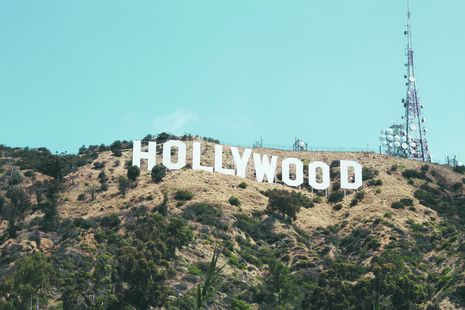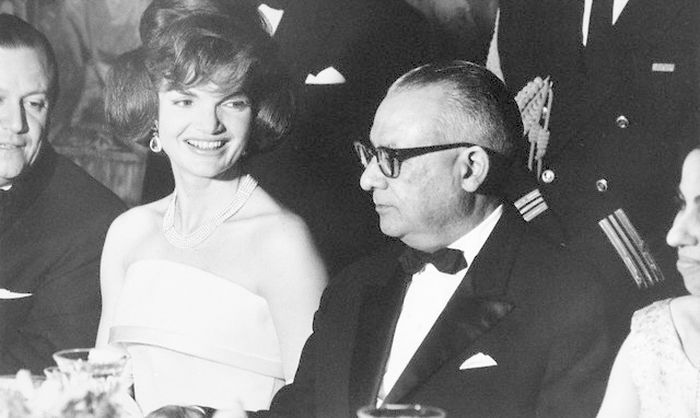Hollywood has stopped dreaming
Lara Davis considers the emergence of creative cowardice and the repetitive franchise

Wonka, Laurie, Paul, Lee – to name but a few of the many faces of Timothée Chalamet. The sensitive soul, the romanticised outsider, the transitioning youth: Chalamet’s delicate physicality and expressive, Bambi eyes lend a sense of vulnerability to each character he embodies.
Yet despite the emotional depth or versatility he channels into each of his performances, the fame of his name latches onto the characters, making it increasingly difficult to separate the actor from the role. The same is true of Hollywood’s other darlings – stars such as Sydney Sweeney, Jacob Elordi, and Zendaya, who became immediate fan favourites as the principal cast of Euphoria. I find myself identifying their latest parts by their most known: Cassie Howard in The White Lotus, Felix Catton in Priscilla, MJ in Challengers. Shadowed by the ghosts of the characters who fostered their celebrity, how can they truly disappear into a new role, when haunted by the last?
“Shadowed by the ghosts of the characters who fostered their celebrity, how can they truly disappear into a new role, when haunted by the last”
Yet the industry seems to favour the familiar faces we know and love, with A-listers often offered leading parts, with no audition necessary. Casting is a challenging process based on much more than competent line delivery; directors are scouting for nuance, chemistry, believability. The incentive, therefore, to search beyond Hollywood’s seasoned stars is minimal when they’re consistently attracting five-star acclaim, and ‘Certified Fresh’ percentages on Rotten Tomatoes.
Proven talent is accompanied by more than just critical credentials: pre-existing fanbases follow, tabloids scramble to cover the drama beyond what we see on-screen (think the romance rumours surrounding Anyone But You front-runners Sweeney and Powell), and page seven publicity becomes headline news. Marketability has stolen talent’s spotlight.
"The dependable characters and narrative arcs of franchises create comfort through their predictability"
The safety net of familiarity seems restricted not only to the actors, but also to the plots themselves. The dependable characters and narrative arcs of franchises create comfort through their predictability. I know the majority of my sick days are marked by chicken noodle soup and a Harry Potter marathon – though a hangover will typically land me in Mordor (The Lord of the Rings). Even in the latest installments of franchise films we know what to expect, whether it’s a Marvel hero saving the world, a Star Wars space battle, or dinosaurs running rampant around Jurassic Park. The repetition is undeniably reassuring, but at what point does it just become boring?
Over the past decade we’ve witnessed, and contributed to, a decline in traction for franchise film series. The MCU’s latest premiere Captain America: Brave New World (February 2025) led the first of many ongoing sagas set to release this year, including the hotly anticipated Mission: Impossible – The Final Reckoning (21 May), the eighth addition to the cinematic sequence. Yet this run time pales in comparison to those such as the James Bond (27 films) and Godzilla (38 films) franchises. The ceaseless scope of content risks the feeling of ‘milking’ a concept as a money grab, rather than original, compelling storytelling (I don’t even need to mention the endless remakes and reboots). This is particularly tedious when encyclopaedic knowledge of the complete back catalogue is needed to be able to follow the newest entry. I can justify one movie as a revision break; but ten? Not so much.
Whilst long-term fanbases may remain devoted to their favourite characters and universes, casual viewers are increasingly deterred from the consistent engagement required to grasp each film. And even with this broader understanding, it may feel like a trade for the unpredictability of a standalone film. This ‘franchise fatigue’, a term coined by producer Rick Berman, is reflected through the Box Office’s gradual wane in profit over the years. Despite 2025’s Captain America movie hauling in $88 million on opening weekend - according to Forbes magazine - this falls short in comparison with the $179 million debut of the 2016 Civil War installment, a trend similarly demonstrated in the performance of other franchises.
Now, this is not a call to send the Avengers packing, or bench the established stars - I am yet to be disappointed by a Chalamet performance, soulful gaze and all. But the same faces, telling the same stories, is beginning to dim the magic of Hollywood. The lack of risk conceives an even greater one: an era of creative stagnation. I know I miss the thrill of the unexpected voices and the childlike wonder of discovering whole new worlds, the fresh faces, the unanticipated twists. This is what makes film an experience, as opposed to just entertainment.
 News / Cambridge academics sign open letter criticising research funding changes22 February 2026
News / Cambridge academics sign open letter criticising research funding changes22 February 2026 News / University Council rescinds University Centre membership20 February 2026
News / University Council rescinds University Centre membership20 February 2026 News / Supporters protest potential vet school closure22 February 2026
News / Supporters protest potential vet school closure22 February 2026 News / Hundreds of Cambridge academics demand vote on fate of vet course20 February 2026
News / Hundreds of Cambridge academics demand vote on fate of vet course20 February 2026 Comment / A tongue-in-cheek petition for gowned exams at Cambridge 21 February 2026
Comment / A tongue-in-cheek petition for gowned exams at Cambridge 21 February 2026








